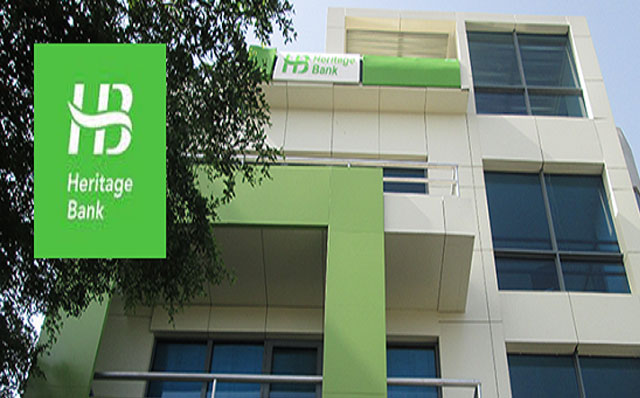Presidency: Democracy Not Under Threat, Rejects Claims of One-party State
Presidency: Democracy Not Under Threat, Rejects Claims of One-party State
*Says democracy waxing stronger under Tinubu with multiparty ideology
*Lauds president, party leadership for making APC attractive to willing Nigerians to join
Deji Elumoye in Abuja
The presidency, yesterday, reacted to insinuations in opposition circles that Nigeria’s democracy was currently threatened under the watch of President Bola Tinubu, and the country was tilting towards a one-party system.
In a release, titled, “Democracy Strong And Alive in Nigeria,” signed by presidential spokesperson, Bayo Onanuga, the presidency dismissed accusations that the Tinubu government was inching towards authoritarianism.
Insisting that democracy was not under any threat, the presidency further rejected claims that the country was being turned into a one-party state amid defections to the ruling All Progressives Congress (APC) by members of leading opposition parties.
The release stated that under Tinubu democracy was waxing stronger, with multiparty democracy making waves.
Puncturing accusations by those it called disgruntled opposition politicians that government was moving towards authoritarianism, the presidency stressed that Tinubu and the leadership of APC deserved commendation for making the ruling party viable and attractive to all Nigerians willing to participate in the democratic process.
The statement said, “We have read the alarming claims orchestrated by disgruntled opposition figures, some partisan human rights crusaders and emergency defenders of democracy over recent defections of key members of opposition parties into the governing All Progressives Congress.
“The seismic shift caused by the defection of the Delta State governor, Sheriff Oborevwori, the former governor and vice presidential candidate of the Peoples Democratic Party in the last election, Dr. Ifeanyi Okowa, and the principal political actors in Delta State, certainly, threw the opposition and their sympathisers into disarray.
“While the opposition elements are understandably heartbroken and disillusioned over the failure of their fabled grand coalition to gain traction, we find it disturbing that they resorted to peddling false allegations of the promotion of a one-party state against President Bola Tinubu, who is working very hard to reverse decades of economic mismanagement of our country.”
The president stated, “Contrary to the false claims in the sponsored propaganda materials in circulation across mainstream and social media, democracy is not under any threat in Nigeria. Accusations that the administration is moving towards authoritarianism are baseless and exaggerated.
“We must add that no policy, official action, or directive from the presidency seeks to ‘dismantle democracy’ or ‘weaken opposition or create a one-party state.’
“Accusations of bribery, blackmail, and the weaponisation of state institutions only exist in the idle minds of politicians and their agents, who have failed in their assigned duty of opposition.
“The opposition cannot blame President Tinubu and the governing APC for their poor organisation, indiscipline, and gross incompetence in managing their affairs. It is certainly not part of President Tinubu’s job to organise or strengthen opposition parties.”
The government said in the statement, “We find it curious that those who celebrated the defection of the former Governor of Kaduna State, Mallam Nasir El-Rufai, to the Social Democratic Party (SDP) and the formation of a regional grand coalition with the sole aim of defeating President Tinubu in the 2027 election are the same people shedding crocodile tears over Nigeria’s so-called drift to a one-party state and authoritarianism.
“While the latter-day defenders of democracy raised no anxious voice against the disgruntled politicians cobbling an anti-Tinubu, anti-APC coalition along dangerous regional lines, even before INEC blows the whistle for party politicking, they are quick to ascribe the political shifts in some states to ‘bribery, blackmail, and coercion’ without any shred of evidence.
“Without any equivocation, freedom of association, freedom of speech and freedom of choice are part of the cherished ideals of democracy. When politicians and citizens cannot freely join any association or political party of their choice or cannot openly express their views, democracy is imperilled.
“Those opposed to the Tinubu administration should understand that they can issue diatribes, without fear, against the government because we practice democracy.
“It is hypocrisy writ-large when opposition politicians and their collaborators in the ‘human rights’ movement desire that the party of the president should implode so they can gain electoral advantage and cry wolf when their wish does not materialise.”
The presidency insisted, “We want to state that democracy is not threatened or undermined simply because politicians exercise their rights of association. Nigerians migrating to the APC and expressing support for Tinubu are doing so out of their free will, based on the belief that the reforms being executed are in the interest of Nigerians and the unborn generation.
“It is a gross disservice to democracy in itself for these emergency defenders of democracy to delegitimise the political choices of some Nigerians while upholding the choices of others to form a coalition against Tinubu and APC.
“Under President Tinubu, democracy is strong, and the multiparty democratic system will continue to flourish unhindered. His administration remains resolutely committed to upholding and strengthening the democratic foundations upon which our Fourth Republic has stood since 1999.
“Politicians changing party affiliation is not new or peculiar to Nigeria. In more advanced democracies, there are ready examples of notable politicians, statesmen and women who changed their parties.”
The statement stressed, “President Tinubu and the National Working Committee of the APC, under the leadership of Dr. Abdullahi Ganduje, deserve commendation for making the ruling party viable and attractive to all Nigerians willing to participate in the democratic process.
“President Tinubu is an avowed democrat and a firm believer in multiparty democracy. His political activism and democratic credentials in galvanising and strengthening opposition platforms as a force that defeated a sitting president and the then ruling party attest to his profound credibility as a tested and relentless defender of multiparty democracy.
“We urge all Nigerians to join hands with the administration in protecting our democracy by respecting their choices and giving a wide berth to peddlers of alarming narratives rooted in fiction.”
*Says democracy waxing stronger under Tinubu with multiparty ideology *Lauds president, party leadership for making APC attractive to willing Nigerians to join Deji Elumoye in Abuja The presidency, yesterday, reacted to insinuations in opposition circles that Nigeria’s democracy was currently


